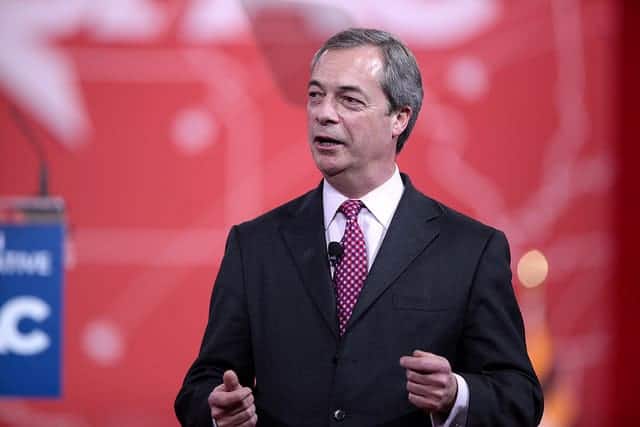Next Spring, European citizens will vote for the new European Parliament. There are many reasons to believe that 2019 elections will be the most significant in EU’s history.
This pivotal political struggle will take place between the neo-nationalist wave (in the disguise of the so-called souverainism) and the conservative establishment, which includes the once-socialists and the post-libertarians who have both lost their peculiar incompatible identities.
What will be missing is a progressive position calling for an enhancement of the EU based on a new political covenant. A European federation and federal states could be the alternative to the anti-EU souvrainism and the pro-EU blind conservatism. Regardless of their political platforms, these two political groups share a common crucial principle: they only consider national states and refuse any authentic federalist approach.
Usually, the participation rate in EU elections is low in all states, with the voters’ main focus on domestic issues. This time, we must certainly vote for the future of Europe for the following reasons.
First, in all countries it is mandatory to adopt a proportional system to assign the parliamentary seats. Consequently, the result will be a weighted representation of citizens’ opinions about the future of Europe.
Second, notwithstanding the never-ending complaining, today’s EU institutions heavily influence the domestic policies of each member state as never before – to the extent, that for the most compelling problems, everyone calls and bargains for European solutions.
Last, a European souverainist front is rising in several member states (UKIP, Front Nationale, Lega, AFD and more). It has the chance to become majoritarian and to invert the route toward more European integration which has unceasingly moved forward in the last seventy years.
Admittedly, the souverainist front lacks a sound and well-defined cultural basis. It uses a language inspired by a nostalgic and superficial return to the old post-WWI or WWII settlement which no longer represents the economic and cultural reality.
Nonetheless, the souverainists’ success derives from their forthright uttering the goal of a Europe meant as a sum of traditional national states. The less educated electorate easily understands their rhetorical language based on an old geopolitical perception, even if the souvrainists’ idea is backward and does not fit in the current European shared lifestyles.
The souveranist front is strong because it directly challenges the faulty European institutions which are obsolete and overburdened by self-referential and hypertrophic bureaucracies.
They send a clear message and, though it is based on a worn language and nostalgic nationalism, they brilliantly link it to new issues. Certainly, they disown some of the inalienable principles of civilisation and culture and are fascinated by a naïve barbarian cult of strength as well as an illusory purity of uncomplicatedness.
This populist phenomenon, now widespread in all Western culture, cannot be discarded as just people’s stupidity, temporary mass madness or political instrumentalisation, because it is entrenched in psychology and in a social structure that cannot be analysed with old paradigms.
The problem is that nobody is opposing the souvrainists with another vision which is radical, but one that is more civil and accomplished. The only opposition to the souvrainists comes from the old establishment which pursues tactical victories [see Macron] without an earnest platform for renovation.
While the souvrainists’ voice gets louder and louder, the supporters of a European federation in a united Europe are reluctant to advance politically appealing proposals. The autonomist and federalist claims in major states are repressed.
While the souvrainists flaunt the nightmare of an invasion of foreigners and obscure financial conspiracy, nobody vehemently advances the goal of federal states in a federal Europe. A federal Europe that can be re-founded starting from the grassroots, be governed by active citizens and be inspired by the subsidiarity principle. A Europe emerging from municipalities and developed in regions (states) and founded on a European shared sense of belonging.
On the contrary, against the new souvrainism, which resurrects phony nationalisms and nineteen hundred ideologies, the EU establishment’s ‘reaction’ (sic!) is nothing but offering the same state centralism, though shifted at the European level, thus even more distant from the citizens.
EU bureaucrats and conservative politicians do not realise that the souvranists’ success depends fully on the exaggerated power of the states, which monopolises and centralises most of European policies.
The souvrainists’ success is a consequence of having forgotten the principle of subsidiarity which the EU founders vowed as a non-negotiable principle. The barbarian and backward souvranism prospers because the citizens are kept apart from local and regional institutions in an EU which relates only to national states.
There are not yet viable or well-elaborated proposals for a new EU. Moreover, we need to understand the real reasons of the souvrainists’ success instead of opposing a blind strength, which, by the way, is becoming weaker and weaker.
Help us lay the intellectual foundations for a new radical politics. Sign up to get email notifications about anything new in this blog. See also our new book: Backlash: Saving globalisation from itself.






The non souvrainist’s must put forth a positive message about the EU that its future will be a bonding of peoples to make Europe a better place to live in. to prosper etc. It must counter the fear of ‘others’ ,that we are all human together. Disunity leads to splits and weak countries being picked of f one by one by more evil power mongers (Hitler, Putin!?). A federal union can forge strong unity in times of struggle.
At the last election for the European Parliament I attended my polling station in Berlin and spoiled my ballot since I was compelled to vote for a party or a party appointee. That is not my concept of democracy.
“an enhancement of the EU based on a new political covenant” – I am working on it. First step http://www.fuzzydemocracy.eu. Let all members of the European Commission be elected by popular vote, and not be appointed without transparency through the 26 governments. In the digital age this is totally feasible, as explained at the website.
Practical immediate measures to boost the economy: Abolish from January 1, 2019, (do not reduce!) VAT on all personal services EU-wide, among others: hairdressing, mending or reworking clothes etc., taxis, gardening, cosmetics (nailbars, beauticians), restaurant service and the services aspect of hotel accommodation. These are services that are always in demand and if they are taxed people will resort, where possible, to the grey economy. Abolishing VAT on all personal services would promote trade among those whose resources are very limited and so boost the real economy. It would also relieve millions of an onerous process, feindishly complicated, of registering legally their VAT income and their input tax.
Oh, you cannot do it, it is not that simple? Well, how about Italy, for instance, a founder member and until recently an EU enthusiast, just abolishing the aforesaid VAT, if only for the sake of its impoverished South? It will not remedy the poverty, but would ease it just a little and send out a signal. Oh, Italy no longer has the sovereign right to abolish or even reduce VAT rates? Does Italy have any sovereign rights left that matter? Over to you, Corrado Poli.
As presently constituted, the EU and especially the European Commission is, it would seem, devoted to the accumulation of power. To be shared between EU civil servants and those in large non-US corporations. Not even for medium-sized companies. And the many millions trying to make a decent living in the margins must be taught their place, much as the UK, until now the EU employer of last resort, must be punished.
Corrado Poli: This is a vast subject, which we can discuss seriously on this forum, but a first step would be to define what is meant and what is implied by populism, sovereignty, etc. To question the use (abuse) of certain key concepts such as “freedom” (now available in a pack of four apparently). To flag blatant misrepresentations (such as today’s news that, according to the FT, Ms Loiseau has said “France will guarantee the rights of UK citizens living in France — in the hope the UK does the same for French citizens on its side of the Channel” – as if this had not been promised by Theresa May at the outset.) So, the Brexiters and populists have been telling fibs. Some of them, certainly. But hardly on the blanket scale of misrepresentation by the EU establishment and its afficionados.
I have not replied to all your reflections, which merit more time and another occasion. For example, as said, I reject PR, which is premised on the rule of parties. Fuzzy democracy is superior (see also my recent post here on constituency boundaries). By the way, there is no such party in France as the Front Nationale, and never has been with an e. You meant Rassemblement National. PR with minimum (threshold) shares such as the 5% clause in Germany is populism pure. It deprives voters of the possibility of giving a considered voice to minority standpoints and forces them to choose a crude package or bundle (Latin: fasces).
We can agree on “A federal Europe that can be re-founded starting from the grassroots, be governed by active citizens and be inspired by the subsidiarity principle. A Europe emerging from municipalities and developed in regions (states) and founded on a European shared sense of belonging.”. Where we disagree is in the narrative of the two camps and which of them is at fault. What is needed is more discrimination: that is, a willingness to make fine distinctions and to use judgement. “There are not yet viable or well-elaborated proposals for a new EU.” – As you should see I am working on such proposals, the problem is making oneself heard. Feel free to join me.
Dear Mr. Gregory, thanks for your comments. We definitely need to elaborate better definitions of some major concepts that we use in the political language. If we had federal States in a Federal Europe, situations like the Italian South and other countries’ regional diversities would be easy to cope with by providing more flexible fiscal policies, as you indirectly suggest. I checked about Front National in my original text and it was correctly without the final “e”. Strange that an extra “e” came out because in Italian “Front” is masculine and I’d never use a final “e”. However this is a minor issue. Best regards. Corrado Poli